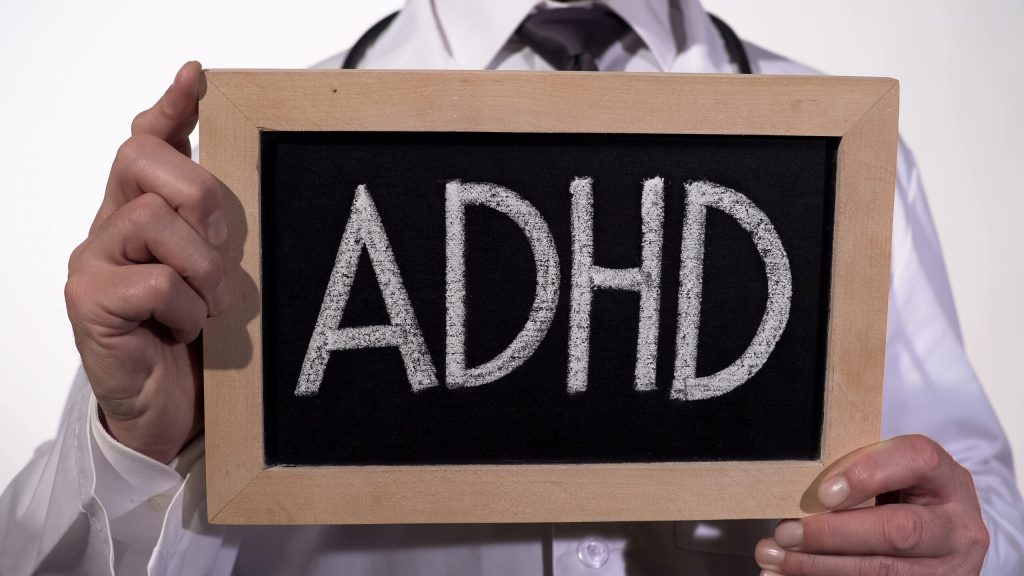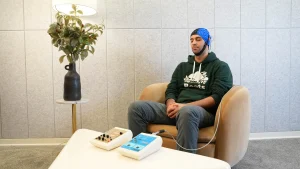Is this you?
You are sitting at your desk at work, but you just can’t focus. You’re trying to start a project but… you don’t know where to begin. You’re juggling emails, meetings, and phone calls, along with all your everyday duties – but you find you can’t keep up. As a result, you feel continuously stressed and stuck.
In addition to work stress, you find you have issues with your relationships. You find there are a lot of misunderstandings, frustrations, and resentment coming from both sides. You feel as if you’re constantly being criticized, nagged, and told what to do – you try your best, but that isn’t enough.
So, what’s going on?
Meet Adult ADHD, a mental disorder that affects around 4.4% of adults averaging a total of 1,500,000 adults in Canada.
Undiagnosed ADHD
There has been a great debate over whether adult-onset ADHD is real. Len Adler, M.D., professor of psychiatry at New York University and one of the leading researchers in adult ADHD, believes that around 75% of adults who have ADHD aren’t aware of it. This lack of knowledge leads to an impact on several areas in one’s life… as we mentioned earlier!
So let’s start at the beginning…
Undiagnosed ADHD in Children
Children with undiagnosed and untreated ADHD will most likely experience many issues both at home and at school. They may have bad grades due to their struggles with attention and have difficulties controlling their emotions which affect their social relationships with their peers. Combined, these will increase their risk of developing low self-esteem or even depression.
As they grow into their teenage years and their ADHD still runs undiagnosed, if the children who didn’t perform well in school – it’s likely they aren’t about to catch up. They will continue to struggle with relationships, may not do so well in the dating world, and they may have issues getting along with their parents.
Especially for girls with ADHD, pose a higher risk of developing an eating disorder that would be linked to depression or low self-esteem.
Having undiagnosed ADHD can harm an individual’s way of life to great lengths. As some symptoms may start to fade with age, it’s a lifelong problem if it goes untreated.
As they grow into their teenage years and their ADHD still runs undiagnosed, if the once-then children who did not perform well in school – it is likely they are not about to catch up. They also will struggle with relationships – meaning they may not have many friends, may not do well in the dating world, and may have issues getting along with their parents.
For young girls especially, they pose a higher risk of developing an eating disorder that would be linked to depression or low self-esteem.
Having undiagnosed ADHD can harm a person’s way of life to great lengths. As some symptoms may start to fade with age, it will be a lifelong problem if it goes untreated.
Symptoms of Adult ADHD
If this much time has passed and you think you may have ADHD, we recommend getting it diagnosed so that you can have access to the treatment you need! But before we get into that, do you know what the common symptoms of Adult ADHD are?
Adults living with ADHD may:
- Have time management issues
- Have difficulty meeting deadlines
- Staying organized
- Relationship issues with friends and significant others
- Have issues with their emotional control
If we compare it to whence they were children, their hyperactivity has evolved to a general restlessness; A kid’s impulsivity has masked with time and now comes out through impulsive spending habits, conversation interruptions, and engaging in risky behaviors.
On the other side of things, we need to consider the emotional impact this has on adults. As we’ve mentioned earlier as a response to their symptoms, they’re likely to develop low self-esteem and or depression.
But – what does that mean?
ADHD and the Emotional Effects
Living with an unrecognized and undiagnosed condition like ADHD is bound to make someone question themselves – and probably a lot. We’ve encountered many who’ve said that they felt as if a light has been shined down on them bringing clarity and answers once they have received reasoning for their behaviors and reactions.
The most common emotional effects of living with untreated ADHD:
- Feeling inadequate for anything made them feel as if they were running on fumes.
- Like they were from outer space as they couldn’t relate or make regular things work.
- Super paranoid – as if everyone is making fun of them.
- Like they had tunnel vision. They would be so consumed by one thing for years and left other important aspects of their life fall apart.
- They felt bored and had trouble holding a job long-term.
Neurofeedback for ADHD
Have you heard of Neurofeedback? It’s one of the most clinically effective ways to alleviate and stabilize symptoms of ADHD – along with Life Coaching and Cognitive Behavioral Therapy.
And this is all non-invasive and without the use of pharmaceuticals. Once you swallow the pill, you pretty much give up control. Side effects can make you sleepy, nauseous, have an allergic reaction that causes you to break out with a skin reaction… it’s all in the flip of a coin.
With Neurofeedback, you keep control and train your brain to heal itself rather than teaching it to rely on medication to curb symptoms.
The Science Behind It
People with ADHD tend to generate too much of the slower brain waves, known as Theta brain-waves located in the Frontal Cortex. As a result, those with ADHD have a shortage of high-frequency Beta brain waves.
What Neurofeedback Therapy does is that it trains your brain to reverse the ratio of Theta and Beta brain waves.
Beta waves: associated with efficient information processing and problem-solving
Theta waves: associated with creativity, insight, deep meditation, and reduced consciousness.
You Got It!
It’s important for you, or if someone you love who you think has ADHD to know that you are in control and you can bring clarity to your life. Symptoms of ADHD can be overwhelming and drowning but it doesn’t have to be that way!
If you want to schedule a Therapeutic Assessment to start your ADHD journey, contact us at any time and we can point you in the right direction.
Elumind Centres for Brain Excellence is an integrated mental health centre offering solutions that can help you with your mental/brain health needs. To start your journey, book your FREE 15-MINUTE PHONE CONSULTATION. We are here for you.








